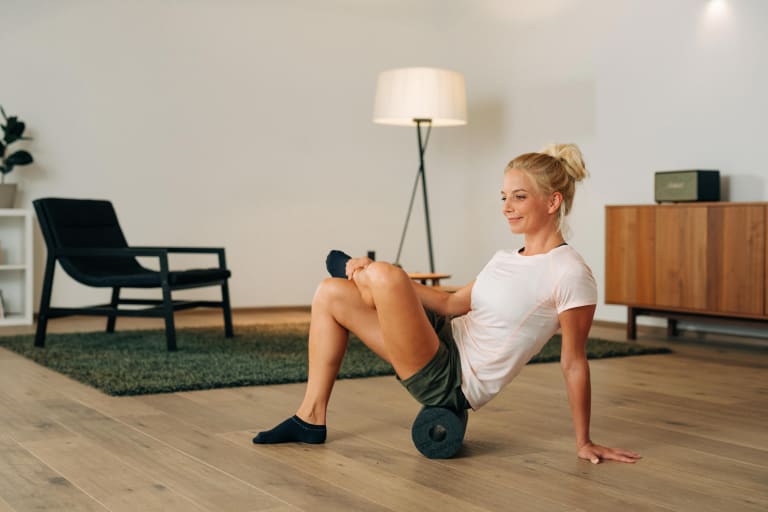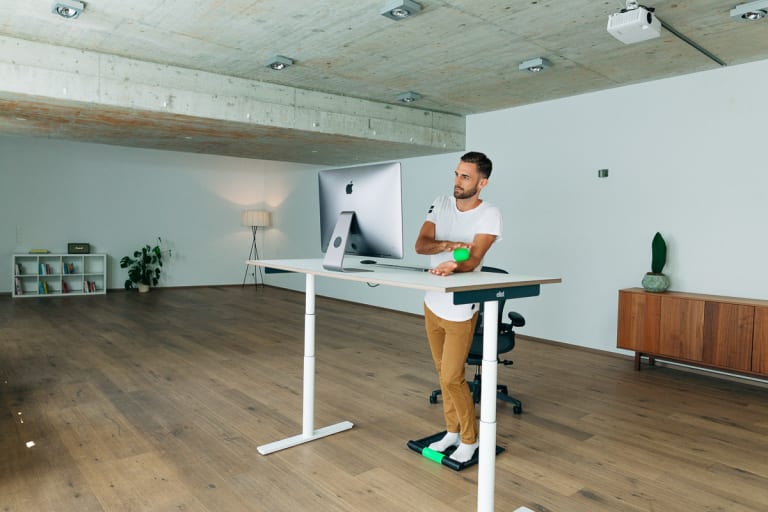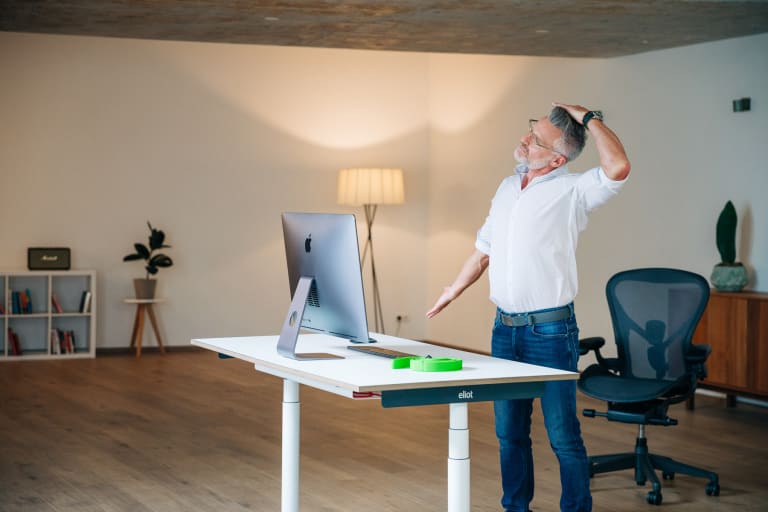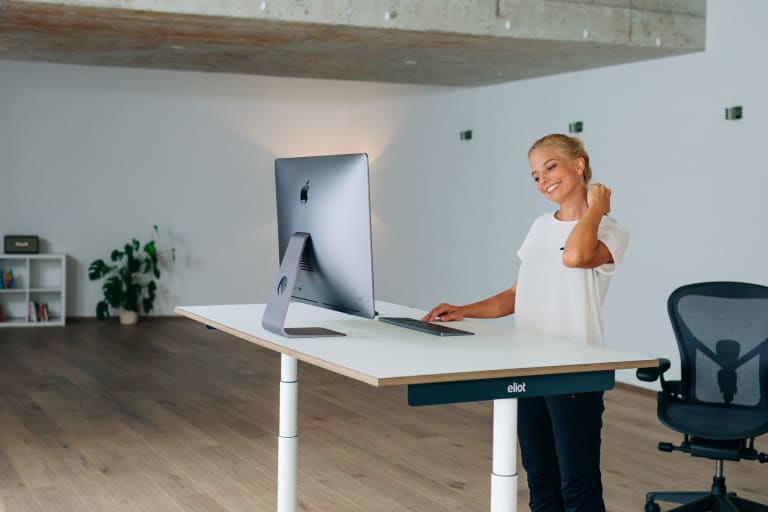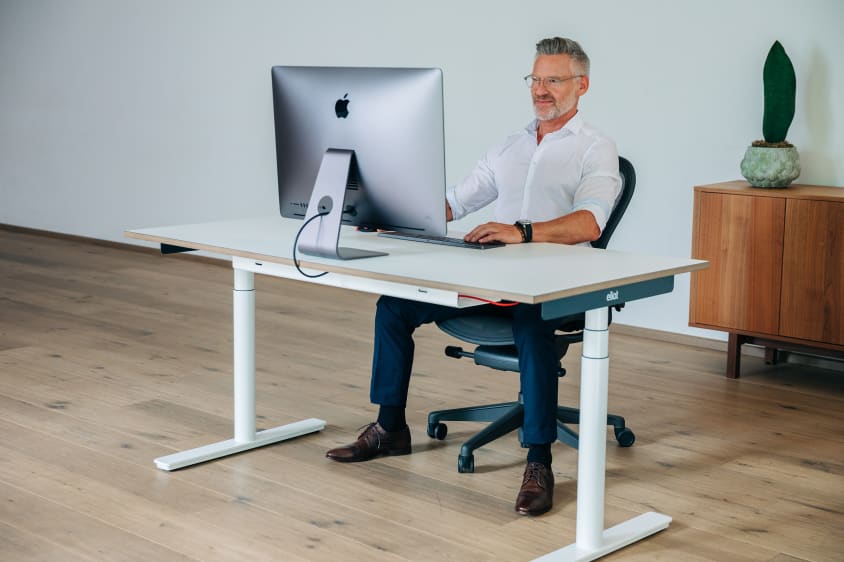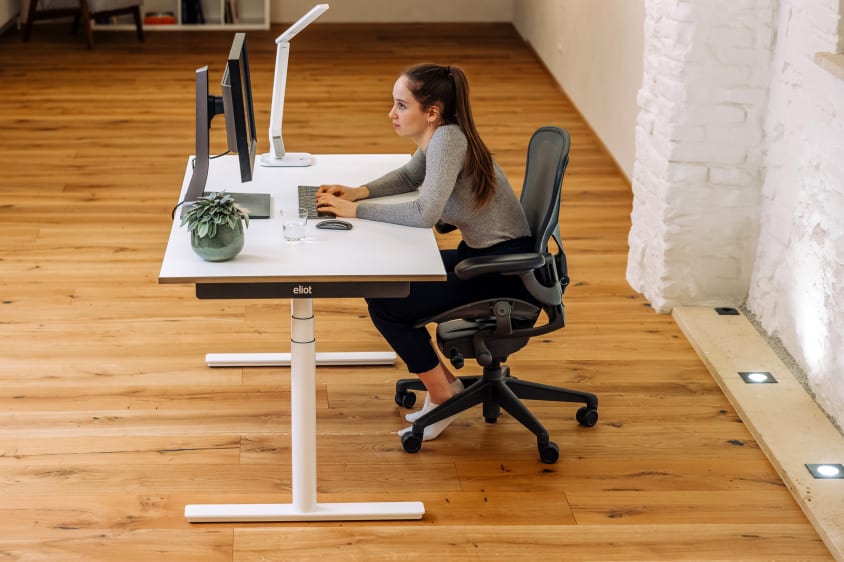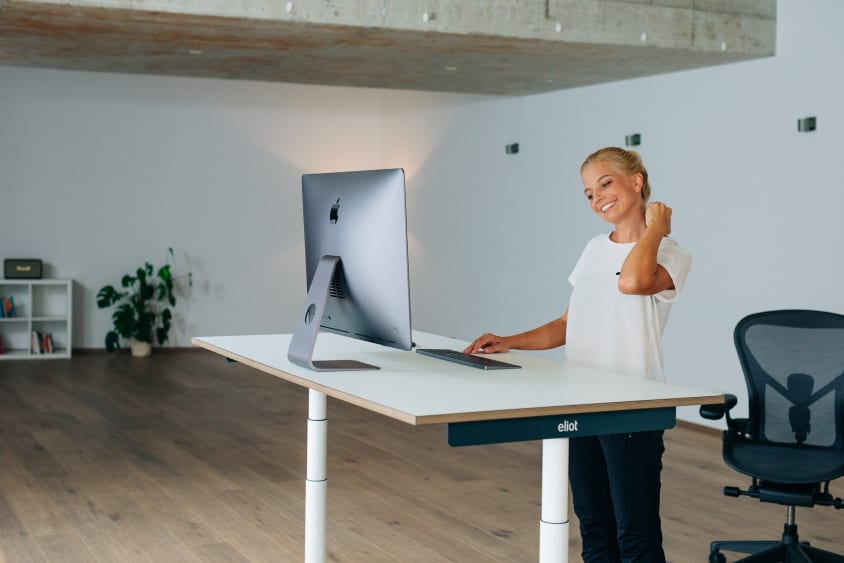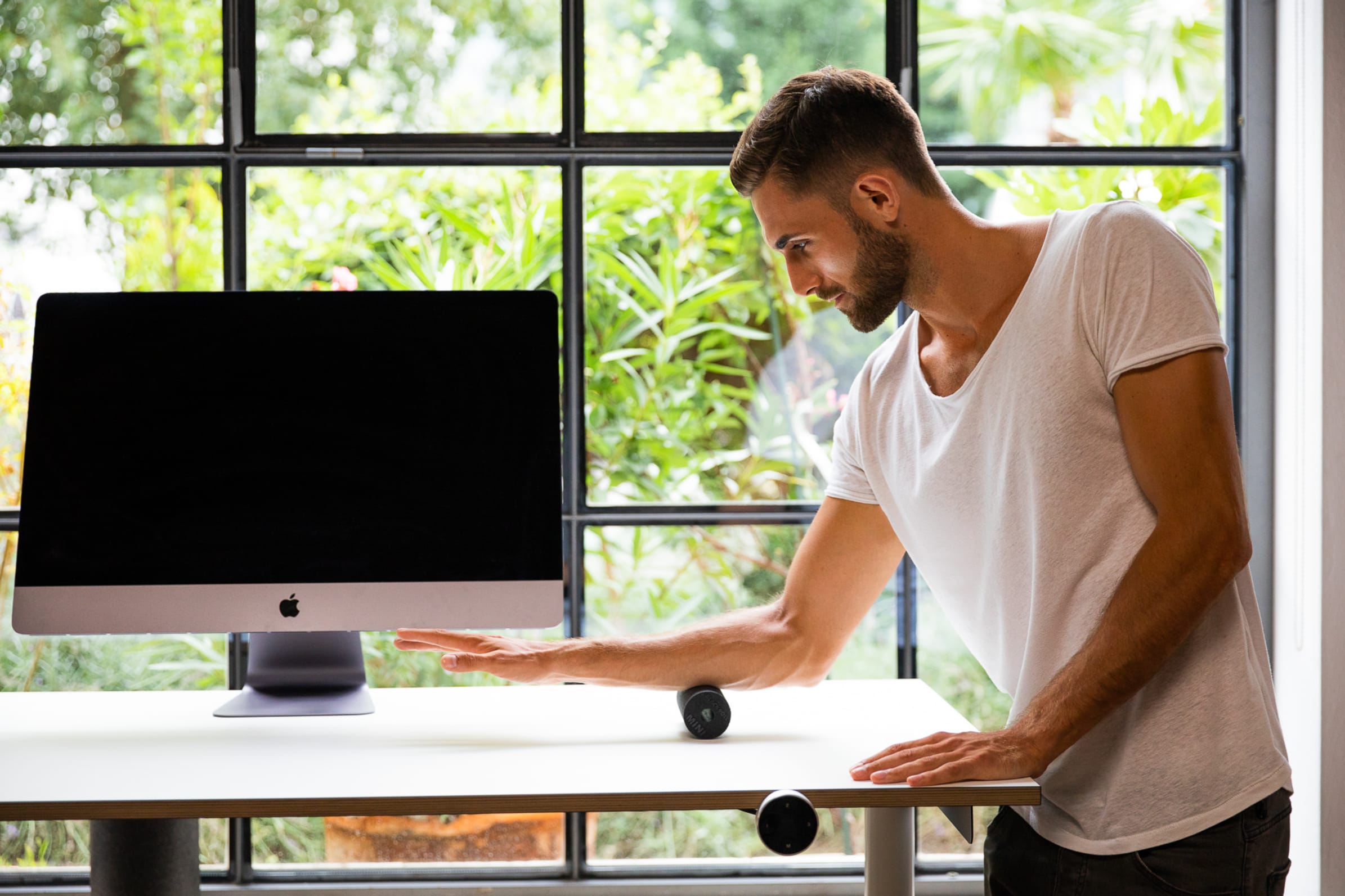
Occupational health – valuable tips for everyday life

Healthy working – a dream rather than a reality for most?!
One of our main challenges is finding the right balance between work and health. After all, our health is indispensable.
On the one hand, your employer can support and protect your health and that of your colleagues by taking various health-related measures. Ideally, this prevents illnesses from occurring. On the other hand, it is in your own interest to protect your health and look after yourself. Both your workplace situation and own habits at home can lead to health issues. And, since professional life can no longer be strictly separated from private life in this day and age, it’s even more important to regard health as your most important asset in all aspects of life.
Digitalisation of the working world continues to move from strength to strength, bringing with its changes to company work structures. In addition to clear benefits and workplace alleviations such as more flexible working hours, simplified communication and working from home, it also increases the risk of new stress-related factors in the workplace such as constant availability and an increase in workload and information, which can damage our occupational health.
01. Physical and mental illness at work
Employees - particularly those who work in an office - have a high risk of musculoskeletal disorders, particularly in the back, neck and shoulder area. Almost 21% of all employee absence days are caused by such issues. The good news, however, is that you can prevent most of these physical problems yourself. Daily exercise, an ergonomically designed workplace, correct posture and a healthy and balanced diet can help to keep you and your body fit and healthy.
We all know that stress can lead to health issues in the long term. But did you also know that mental illness is now one of the most frequently occurring problems? For employees who are affected by this, it can even lead to job loss in the worst-case scenario. The consequences of this cost billions for companies and society and the effects for those affected are barely definable.
02. 5 tips for better occupational health

Resolve the work-life balance conflict as best as possible!
Work inevitably filters into our private life, which makes it difficult to set a boundary between the two. We can soon find ourselves working in our free time (or vice versa) - be it only mentally. This causes a conflict between professional and private life as one usually gets neglected. This also increases the risk of not getting enough down time. If you work from home, it's even more difficult to separate the office and home. You can often find yourself working during your spare time or in the evenings and on weekends. It’s therefore important to physically separate working and living areas. Closing the door to the office can signal that you've finished for the day.
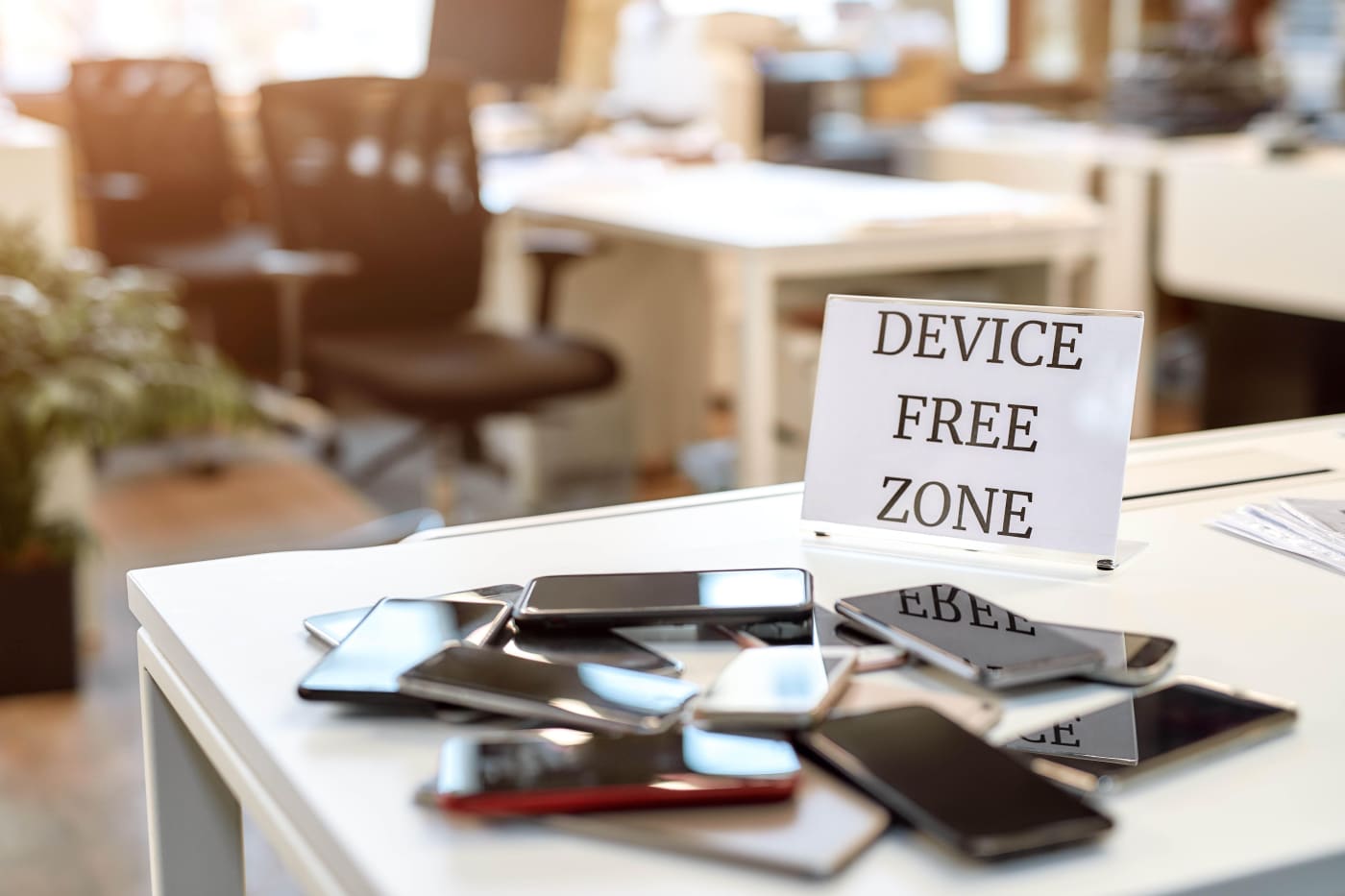
Avoid always being contactable and do meal prep.
Switch off, take a break, perhaps do nothing and feel good about it? Most people struggle to do this! Even the journey to work is often used to make calls, check emails or browse social media and short breaks, such as coffee breaks, are spent glued to our smartphones. “No-phone zones“ (e.g. phones are not allowed in the kitchen) and “free block” from constant availability help to reduce chronic stress. Free time - such as when doing sport, coffee dates with a friend or reading - should be set aside as a free block. Consciously put your phone away or turn it onto flight mode during these free blocks.
A recent TK commuter study has shown that the daily commute is a huge stress factor. You should therefore ensure that your commute (if applicable) is conducive to your health. Take a book/podcast with you or prepare a healthy breakfast-to-go the night before that you can eat en route (provided you’re not sitting behind the steering wheel, of course). By preparing breakfast and lunch (meal prep), you'll also stay healthy and full throughout the work day, avoiding trips to the vending machine or grabbing a sandwich to go.

Drink plenty of fluids and take regular breaks.
In order to properly regenerate during the work day, it is recommended to drink plenty of fluids and factor in enough time for breaks. You should drink at least 1.5 litres of water – ideally spread throughout the day. Regular microbreaks (away from your desk) are better than fewer long breaks. You can fill these breaks with a power nap, breathing relaxation techniques, short walks, relaxation or stretching exercises, resistance band training or eating a healthy snack. Don’t feel guilty about doing this. This applies to both professional and private life. Regular breaks help you to stay focussed and increase productivity. A useful guide for scheduling breaks is to take a two-minute movement break for every 30 minutes spent sitting at your desk. If you skip a break - perhaps because you are stuck in a long meeting - simply extend it to 4 minutes.
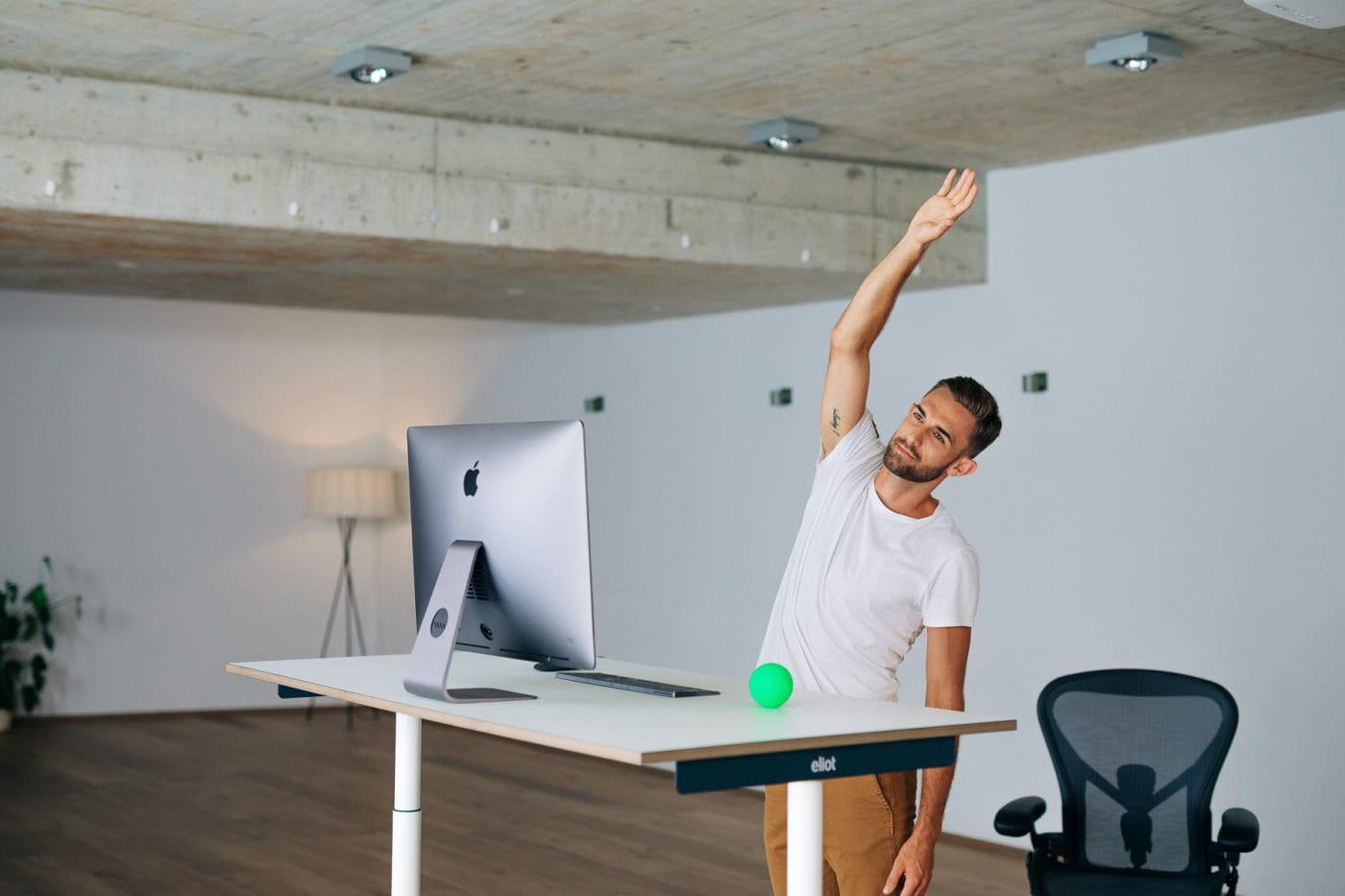
Reduce the time spent sitting and move more!
Why not make it a habit to stand up or move around while on the phone? March on the spot or in a circle. This will ensure more movement in the office and improve occupational health. Or perhaps hold a meeting while taking a walk. In our free time, we often notice that we are more creative while walking outside in the fresh air. Why not integrate this habit into your working day? Don't worry. You can take notes using the voice memo function on your smartphone. That means you'll have them to hand after the meeting.
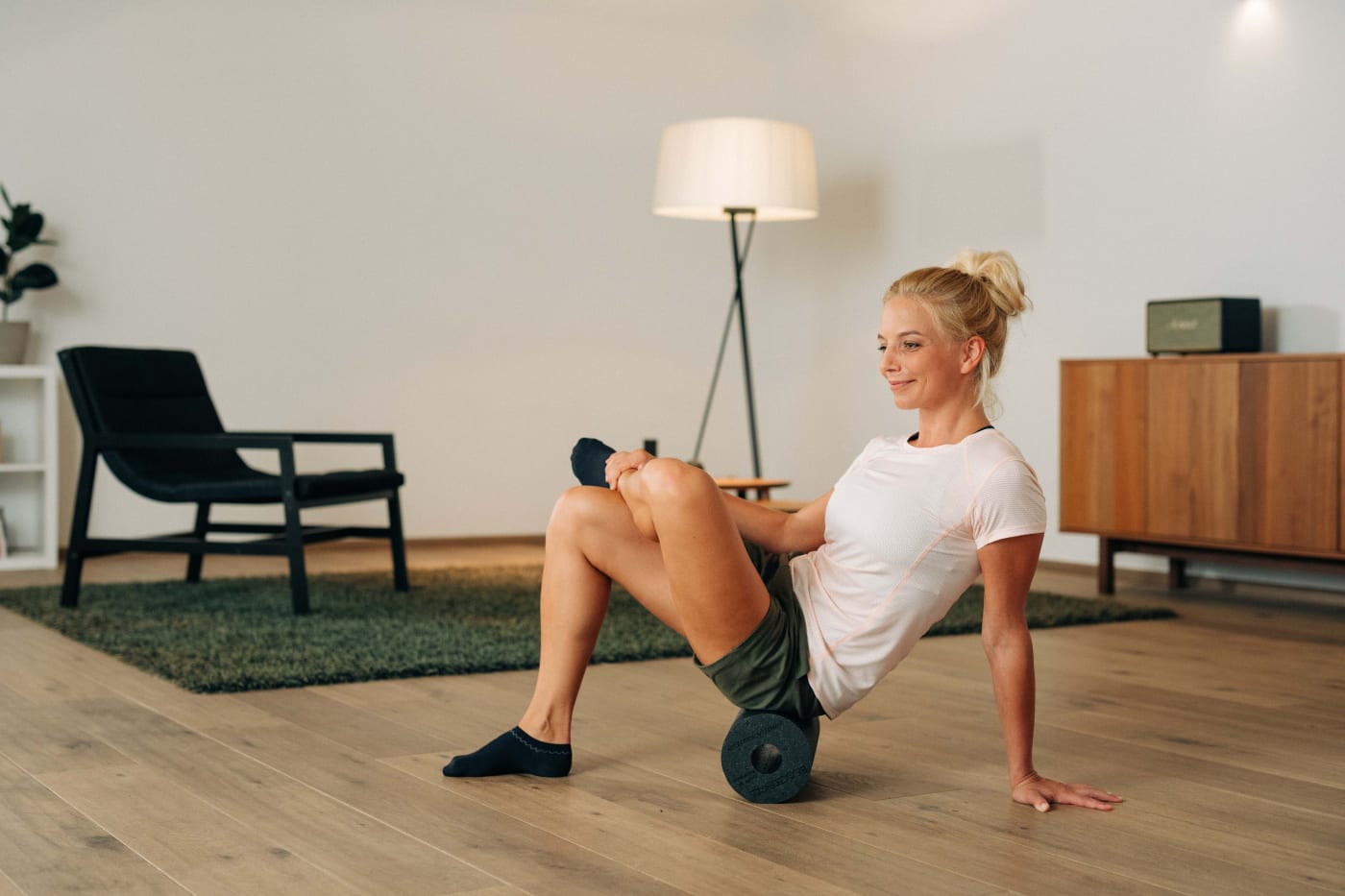
Aim for a contrast when you finish work
Aim to find a post-work activity that contrasts with what you do at work. Anything that doesn't involve screens and the internet is particularly beneficial. Plan offline activities for your evenings now and then, such as puzzles, reading, origami, sudoku, upcycling, yoga, fascia training etc., which will all contribute to a relaxing night’s sleep.
Been inspired by our tips? If you’ve read this blog to here, that shows that you really want to change something about your daily habits. So, don't delay – improve your occupational health!
